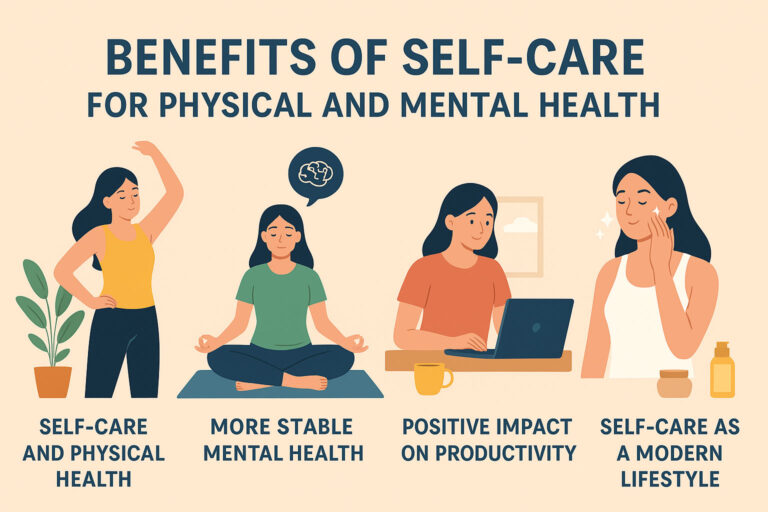Pixie Forever – In today’s modern era, filled with work pressure, busy schedules, and increasing social demands, taking care of oneself has become a necessity. The Benefits of Self-Care are not just a lifestyle trend but a real need closely related to one’s physical and mental health. Awareness of self-care is now considered an essential part of healthy living, gradually being adopted by many people across different walks of life.
Self-Care and Physical Health
Self-care plays a vital role in maintaining physical health. Simple activities such as regular exercise, eating a balanced diet, and getting enough rest are all part of self-care practices. Health studies show that exercising regularly can strengthen the immune system, improve blood circulation, and maintain heart health. Meanwhile, a balanced diet with proper nutrition helps the body stay fit while preventing chronic diseases.
Self-care also includes basic hygiene and daily routines, such as washing hands properly, maintaining healthy skin, and establishing a good sleep schedule. When the body is well cared for, the risk of infections, skin problems, and metabolic disorders can be significantly reduced.

More Stable Mental Health
Beyond physical well-being, mental health is strongly influenced by self-care. In times of stress and pressure, taking time to relax, enjoy hobbies, or do enjoyable activities can reduce anxiety. Psychologists highlight that individuals who regularly practice self-care often experience lower stress levels and greater emotional resilience.
Examples include meditation, journaling, or simply taking a walk outdoors, which are proven to improve mood. Even simple routines like listening to music or practicing skincare can bring calmness and increase self-confidence. On the other hand, neglecting self-care often leads to fatigue, stress, and loss of motivation.
Positive Impact on Productivity
Many assume that self-care is a waste of time. In reality, self-care can increase productivity. When both the body and mind are healthy, individuals are more focused and efficient in their work. In professional environments, people who maintain balance through self-care usually show more consistent performance.
Today, even large companies are beginning to recognize this. Employee wellness programs, special leave for rest, and stress management workshops are becoming common practices. This shows that self-care not only benefits individuals but also positively influences workplaces and society as a whole.
Read more : “International Relations: Netanyahu Slams Palestine Recognition“
Self-Care as a Modern Lifestyle
The self-care phenomenon is growing more popular, especially among younger generations. This can be seen through the increasing number of social media posts related to self-care, covering exercise tips, healthy eating, and body care recommendations. Such trends reflect a shifting mindset—that taking care of oneself is not selfish, but a responsibility for personal health.
However, it is important to remember that self-care is not only about appearance or buying beauty products. Its essence lies in creating balance between the body, mind, and spirit. Establishing proper rest, maintaining healthy social connections, and avoiding harmful habits such as smoking or excessive alcohol consumption are all important elements of true self-care.
Research Evidence on the Benefits of Self-Care
Several studies show that consistent practice of the Benefits of Self-Care can reduce the risk of anxiety and depression. Other findings reveal that people who adopt self-care routines tend to have stronger immune systems, making them less likely to fall ill. Reports from international health organizations also confirm that a healthy lifestyle is the key to longer life expectancy.
In Indonesia, awareness of self-care has been rising as well. Health communities, clinics, and online media platforms actively educate the public on the importance of caring for the body and mind. This is a positive sign that more people are beginning to understand that health is not only about being free from illness, but also about achieving overall physical and mental balance.
Challenges in Practicing Self-Care
Despite its proven benefits, self-care can be difficult to implement consistently. Busy work schedules, lack of time, and limited awareness are common obstacles. Many individuals still prioritize productivity over health, eventually neglecting their physical and mental needs.
The solution lies in starting small. For example, setting aside 10 minutes each morning for meditation, taking a 30-minute walk after work, or journaling before bed can make a significant difference. Small, consistent changes build long-term habits that support overall well-being.



